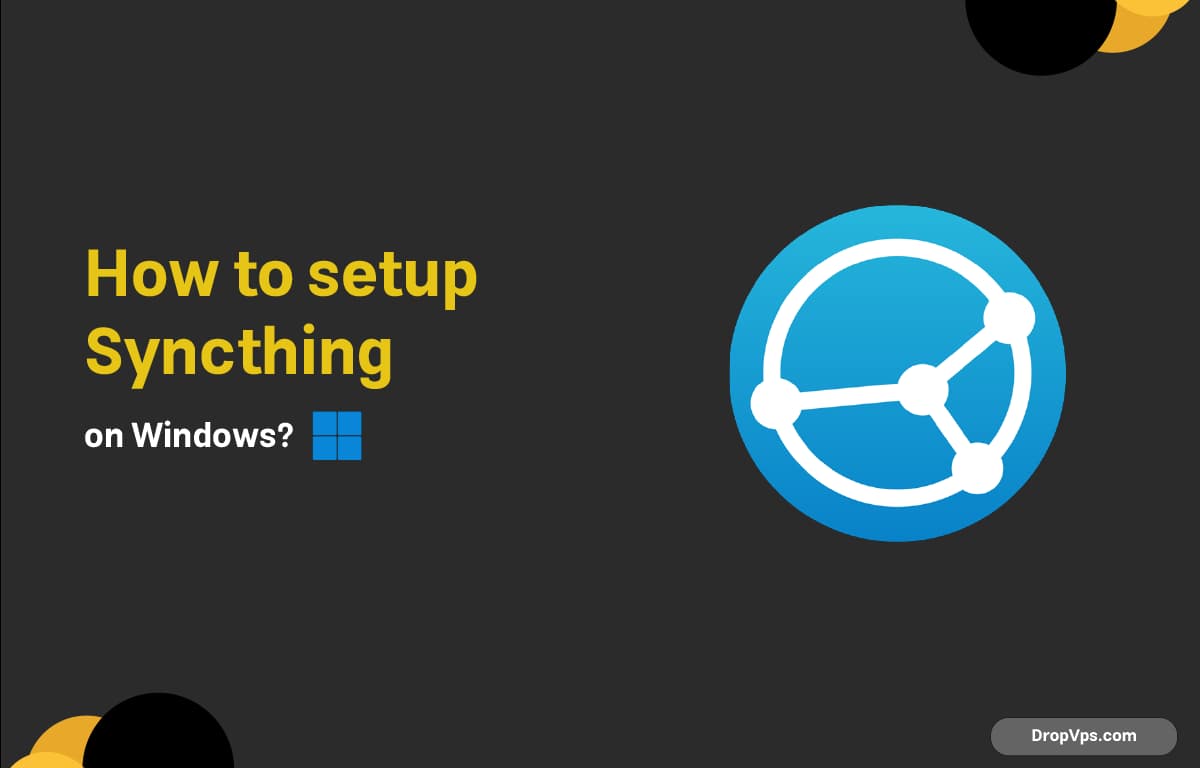Table of Contents
What you will read?
Download Syncthing from the official website. Choose the Windows (64-bit) version.
Extract the downloaded ZIP file to a permanent location (like C:\Syncthing). This folder will contain syncthing.exe.
Step 1: Run Syncthing
Open Command Prompt or PowerShell, navigate to the folder where you extracted Syncthing:
cd C:\Syncthing
.\syncthing.exeThe first time you run it, Windows Firewall will ask for permissions—allow access for both private and public networks.
Syncthing will now open in your browser at:
http://localhost:8384This is the Syncthing Web UI.
Step 2: Set Syncthing to Start Automatically
To run Syncthing at login:
Press Win + R, type:
shell:startupCopy a shortcut to syncthing.exe into this folder.
Now Syncthing will launch every time you log in.
Step 3: Add a Folder to Sync
In the Web UI:
-
Click “Add Folder”

-
Set a Folder Label and a Folder Path
-
Click “Save”
Syncthing will start indexing the folder immediately.
Step 4: Connect Another Device
On both devices:
-
Go to the “Actions” menu → “Show ID”
-
Copy the device ID
Then on one device:
-
Click “Add Remote Device”
-
Paste the other device’s ID
-
Optionally, give it a name and share folders
After both devices accept each other, the folders will start syncing automatically.
Step 5: Optional – Install Syncthing as a Windows Service
To run Syncthing without user login, use nssm (the Non-Sucking Service Manager):
Download nssm.exe from https://nssm.cc and run:
nssm install syncthingIn the GUI:
-
Path:
C:\Syncthing\syncthing.exe -
Set startup directory and log files if needed
Click Install service, then start it from services.msc.

